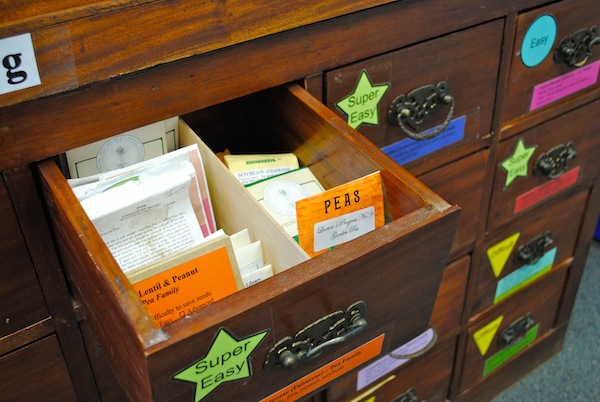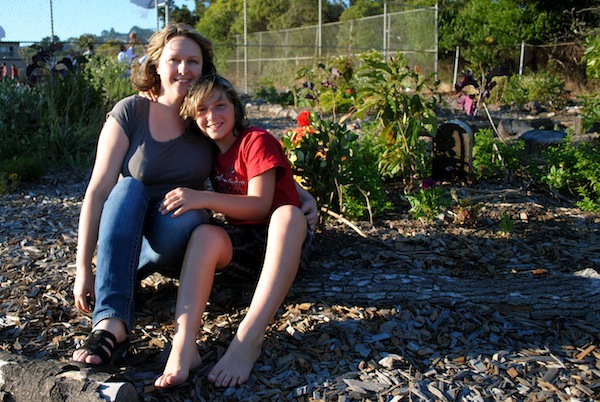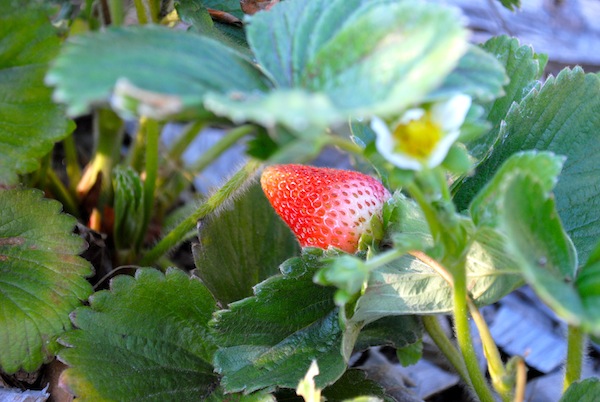When Rebecca Newburn was volunteering at the Bay Area Seed Interchange Library in Berkeley, an organization that makes free seeds available to the public, she thought to herself, “I would like this for my community.”
Newburn has lived in Richmond for eight years, and her work as a science and math teacher in Marin County hasn’t taken her away from being a long-time gardener. “I love the idea of checking out seeds,” she said. Together with other community organizations and volunteers, Newburn helped found the Richmond Grows Seed Lending Library, which opened just two months ago and is located at the main public library. Together with Catalin Kaser, she serves as the library’s coordinator.

At the seed library, people can “check out” healthy seeds, use them to plant herbs, vegetables and flowers, and return new seeds from the resulting plants at the end of the season. The seed check-out process is self-service and it’s explained on the Richmond Grows website. Interested people can sign up for 45-minute orientations offered at the library several times a month and/or watch a 10 minute video at their websitethat clearly explains the process.
This seed library is another effort that Richmond residents are making to grow food locally and build community, and Richmond’s is the first one in the nation to operate at a more traditional public library. “We put it in a public space because we wanted the entire public to have access,” Newburn said.
The seed library is a collaborative project of the Richmond Public Library and the Richmond Rivets, a non-profit that promotes the local production of food, energy and goods. Newburn said that approximately thirty people had volunteered to make the library possible. “It’s a community effort,” she said.
Meant to be a model for other communities, the Richmond Grows Seed Library have all its informational materials available for free to be downloaded from their website so other communities can start their own libraries of this kind.
Even though the coordinators are still in the process of getting the library up and running, they’ve had media coverage already and the East Bay Express gave them the 2010 Best of the Bay Award for the best seed-lending library.

Other community efforts to support more sustainable food and gardening are also growing in Richmond. Urban Tilth is a non-profit that supports urban agriculture in West Contra Costa County. It is the fiscal sponsor of Richmond’s seed library, and also has a number of other projects including the coordination of ten small farms and providing technical assistance to seven community and school gardens across Richmond and San Pablo.
One of these gardens is around the corner from Deirdre Candelaria’s Richmond home, right up against I-80 at the intersection of Humboldt and Solano Avenue. Formerly a dirt lot that attracted garbage, Candelaria thought that it could be a great place for a community garden. Other neighbors were interested, too. Urban Tilth helped organize and plan the project and made donations of soil and plants. About 20 households participated in the making of what now is the Humboldt Edible Forest, a garden that has been growing for two years.
Tomatoes, chamomile, cabbage, mint and blackberries are some of the things planted at the garden. People can take what they need and in exchange there is an unspoken agreement that they take care of the garden by planting, watering, cleaning or participating in workdays. “We take and take and take from the Earth and we haven’t learned how to give back,” Candelaria said, “If someone enjoys a fruit we ask that they find an act of service, for example picking up trash or watering, that feels like a good exchange.”
Candelaria said that the experience of sharing a community garden has been sweet. “There is this one mother who would come out with her son—they planted this special pumpkin that they came and water every day,” she said.

Candelaria recently found out about the Richmond seed library on the web and is looking forward to participating. “It’s great that people have access to the seeds for free,” she said.
As with the Humboldt Edible Forest, the concept of “giving back” is also very important at the seed library, when people take seeds they are expected to return the seeds. The seed library wants to create four videos to educate people on how to save seeds from their new plants so they can return them at the end of the season. They are starting a “kickstarter fundraising” campaign to get the videos done.
According to Newburn, seed saving had been a tradition in the past and hopes that Richmond residents can now revive it. “The seeds have value as food, but also they are connected to our family and our community,” she said.
July 20, 2010 Richmond Confidential

